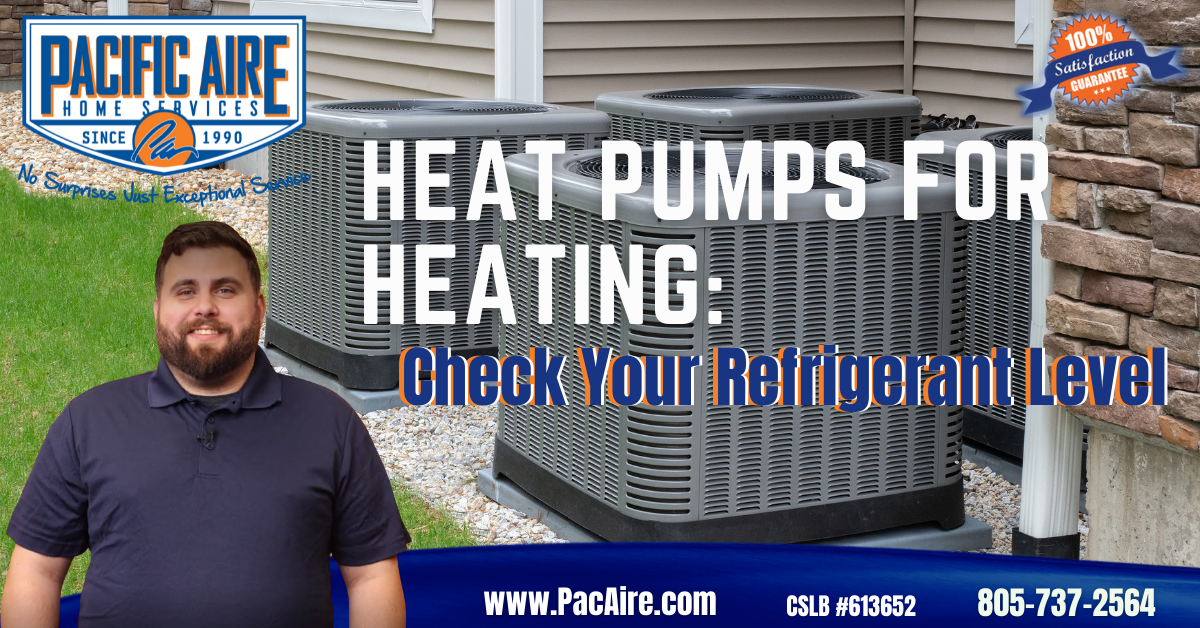Hello, I’m Matthew Upchurch, Manager at Pacific Aire. As fossil fuels become increasingly more
expensive and emissions standards get tighter and tighter, many of our customers are moving to Heat
Pump systems instead of a traditional gas furnace and air conditioner. But there is a key difference
between these two arrangements when it comes to using for heating your home: Heat Pumps will use
refrigerant.
In a standard gas electric split system, the furnace is the only piece of equipment used for heating.
Natural Gas or Propane is ignited and 70-95 percent of the heat generated from this burning is
transferred into a heat exchanger and used to heat a home.
In a Heat Pump system heating is done in two different ways. The primary method is essentially using
the air conditioner in reverse. Instead of using the unique properties of refrigerant to pump heat out of
your home to cool, heat from the outdoors is pumped into your home to heat. At this point you might
be thinking “it’s cold, I’m using my heater, what heat can there even be outside?”. Fair question. Most
heat pumps in use today have an effective operating temperature range for heating down to 40 degrees
Fahrenheit. So long as there are a few degrees of difference between the condenser and the outdoor
temperature, heat will be pumped inside.
What happens below 40 degrees? This is where auxiliary heat comes into play. For the extra chilly nights
where temperatures dip below freezing, resistive electric heaters, in most cases, heat strips, are used to
either defrost your condenser or to provide emergency heat inside your air handler. It’s important to
know that resistive heating is much less efficient than the primary heating method.
If you are not getting the performance out of your Heat Pump that you are expecting, you might need to
get a licensed HVAC contractor to check your refrigerant levels. Without the proper refrigerant charge
you may be colder, longer than you want or paying more for electricity than you should because your
system is leaning on auxiliary heat.
Give Pacific Aire a call at 866 PAC AIRE or visit us online at PacAire.com


